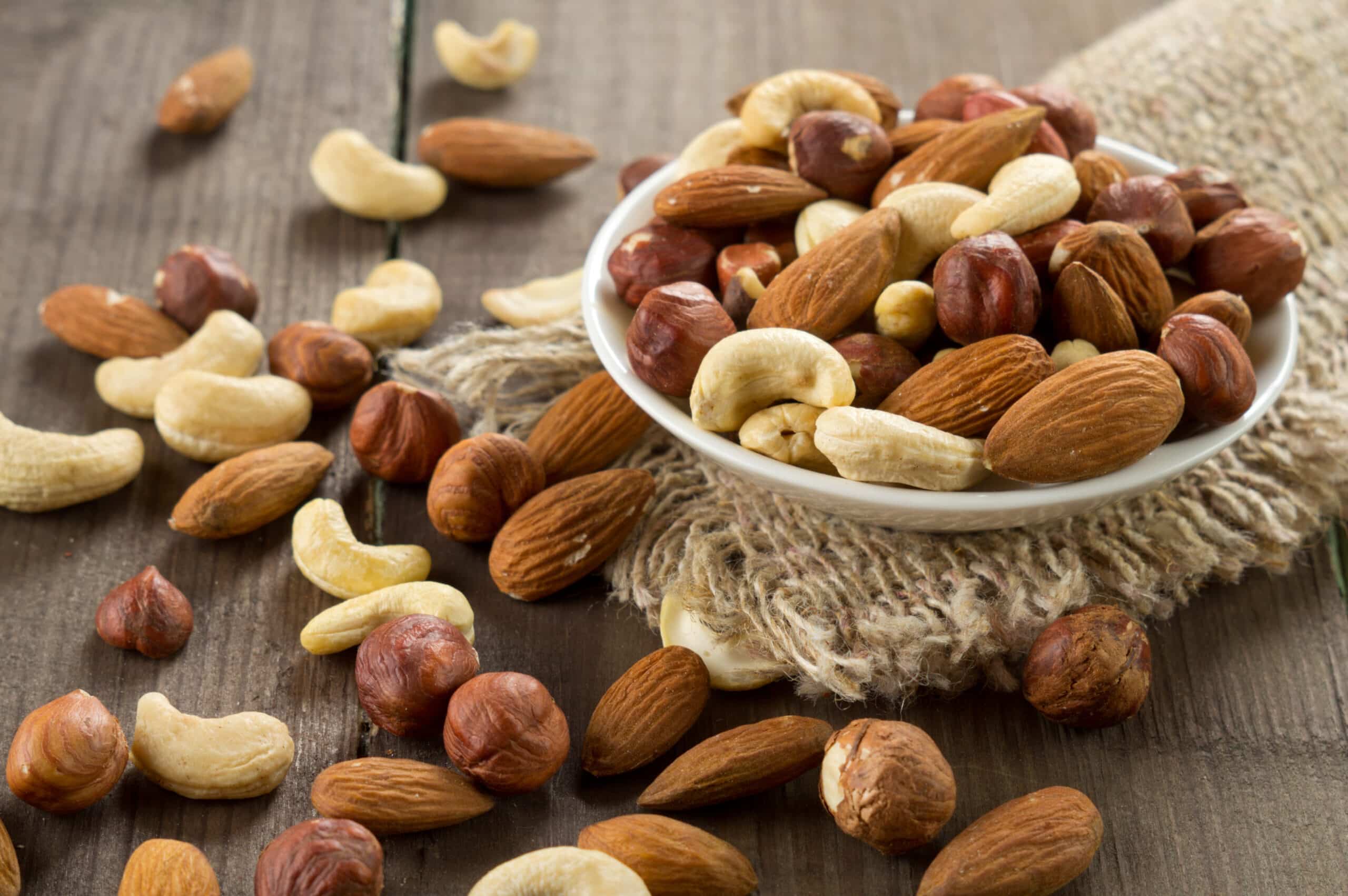Researchers at Vanderbilt University Medical Center enrolled 84 participants between the ages of 22-36 who were either overweight or obese for this study. The participants had at least one MetSx risk factor at baseline: abdominal obesity, elevated triglycerides, low HDL cholesterol, high blood pressure, or elevated levels of blood glucose. For the study period, the participants consumed either one ounce of mixed unsalted tree nuts or one ounce of a carbohydrate-rich snack twice a day, however, both snacks provided the same amount of calories, protein, fiber, and sodium, as well as being part of a 7-day eucaloric weight maintenance menu that repeated throughout the 16-week study duration.
According to the researchers, females in the nut group experienced waist circumference reduction with a mean difference of -2.20 ± 0.73 cm, P = 0.004, and trended toward reduced visceral fat with a mean difference of -5.27 ± 13.05 cm2, P = 0.06 compared to those in the carb snack group. Males in the nut group experienced decreases in blood insulin levels with a mean difference of -1.14 ± 1.41 mIU/L, P = 0.05 compared to those in the carb snack group. Both genders in the nut group saw an effect on triglycerides ratios with a mean difference of P = 0.04 for both as well as TG/HDL ratio reductions with a mean difference of ~11% compared to those in the carb snack group.
“When we assessed the effect of tree nut snacks on individual MetSx scores (calculated by assigning 1 point for each metabolic syndrome risk factor),” said Principal Investigator, Heidi J. Silver, R.D., M.S., Ph.D., Research Professor of Medicine at Vanderbilt University Medical Center, “we observed a 67% reduction in MetSx score in females and a 42% reduction in MetSx score in males.”
The overall prevalence of MetSx has increased to 21.3% among “healthy” young American adults between the ages of 20-39 years old. Tree nuts have been shown to help reduce the risk of several chronic diseases including obesity, diabetes, and heart disease, according to Maureen Ternus.
“We know that snacking contributes almost 25% of total daily calories in young adults in the U.S.,” explained Dr. Silver. “Substituting typical high carbohydrate snacks with tree nuts (almonds, Brazil nuts, cashews, hazelnuts, macadamias, pecans, pine nuts, pistachios and walnuts) would likely have a positive impact in reducing the risk of metabolic syndrome and its consequences in this age group.”
“With MetSx and its various risk factors on the rise worldwide, this is yet another reason to include tree nuts in your diet,” said Maureen Ternus, M.S., R.D.N, Executive Director of the International Tree Nut Council Nutrition Research & Education Foundation (INC NREF). “In 2003, the FDA (in its qualified health claim for nuts and heart disease) recommended that people eat 1.5 ounces of nuts per day—well above current consumption levels. We need to encourage people—especially those Millennials at risk for MetSx—to get their handful of nuts every day.”




